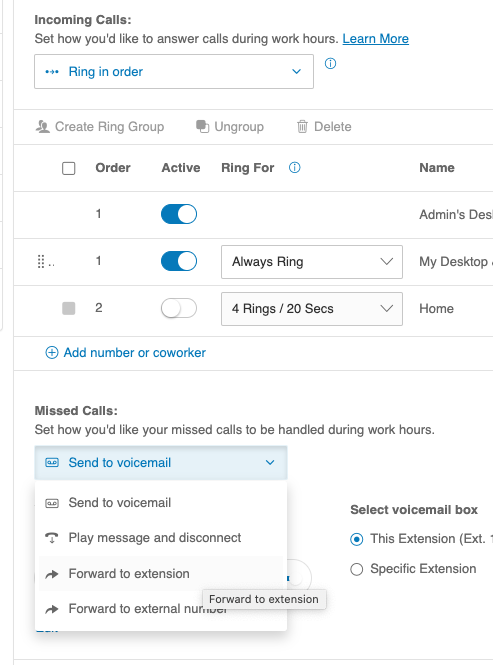© 1999-2024 RingCentral, Inc. All rights reserved.
Privacy Notice
Question
How do I route a call to a user before routing to a queue?
I own a property management software system. It basically holds reservations that guests make for vacation rentals. Today, I use Heroku in order to get a notification that a new call has been received and directed to an extension. Most companies just use extensions and then use the forward feature within the extension to forward calls to different agents in sequential order.
Now the complicated part :)
When I get this new call that went to the extension posted to my system, I have the ability to check my database to find out if an agent was already working with the guest. In an ideal world, I would want to connect that caller to the agent they were working with.
However, most companies have menus set up such as:
> Press 1 for reservations, Press 2 for owner support.
When you press 1, you go into a sequential order for people to answer. So now I have the call, but how do I try to give it to the specific extension I want to connect taking into account they may not answer and therefore I need the call to continue going through the rest of the sequential numbers?
I could create a generic first person in the sequence of forwarding numbers/extensions that wants to do this type of smart transfer.
When that call comes in, I will be able to identify if there was an agent that worked with that guest. What do you recommend doing so that I can ring that agent but if they don't answer, it goes back in the queue? Should I use the API and update the sequence of numbers to ring each time a call comes in?
This seems like a mess because then I would need to put it back to the original setting once the call ends. I need to attempt to transfer the call to that agent. Give them X rings and if there is no answer, then let the call continue to flow through the queue.
Any suggestions?
Enter your E-mail address. We'll send you an e-mail with instructions to reset your password.




